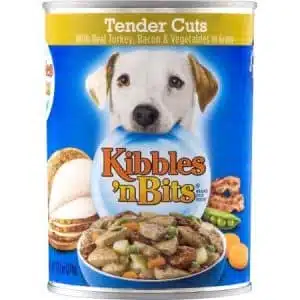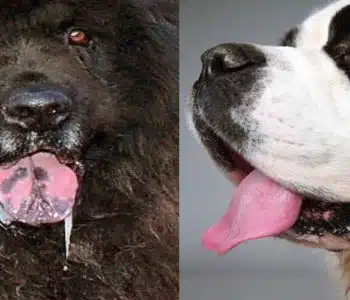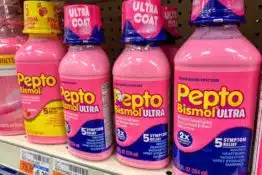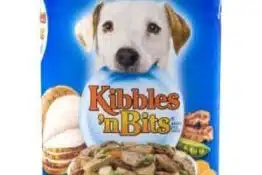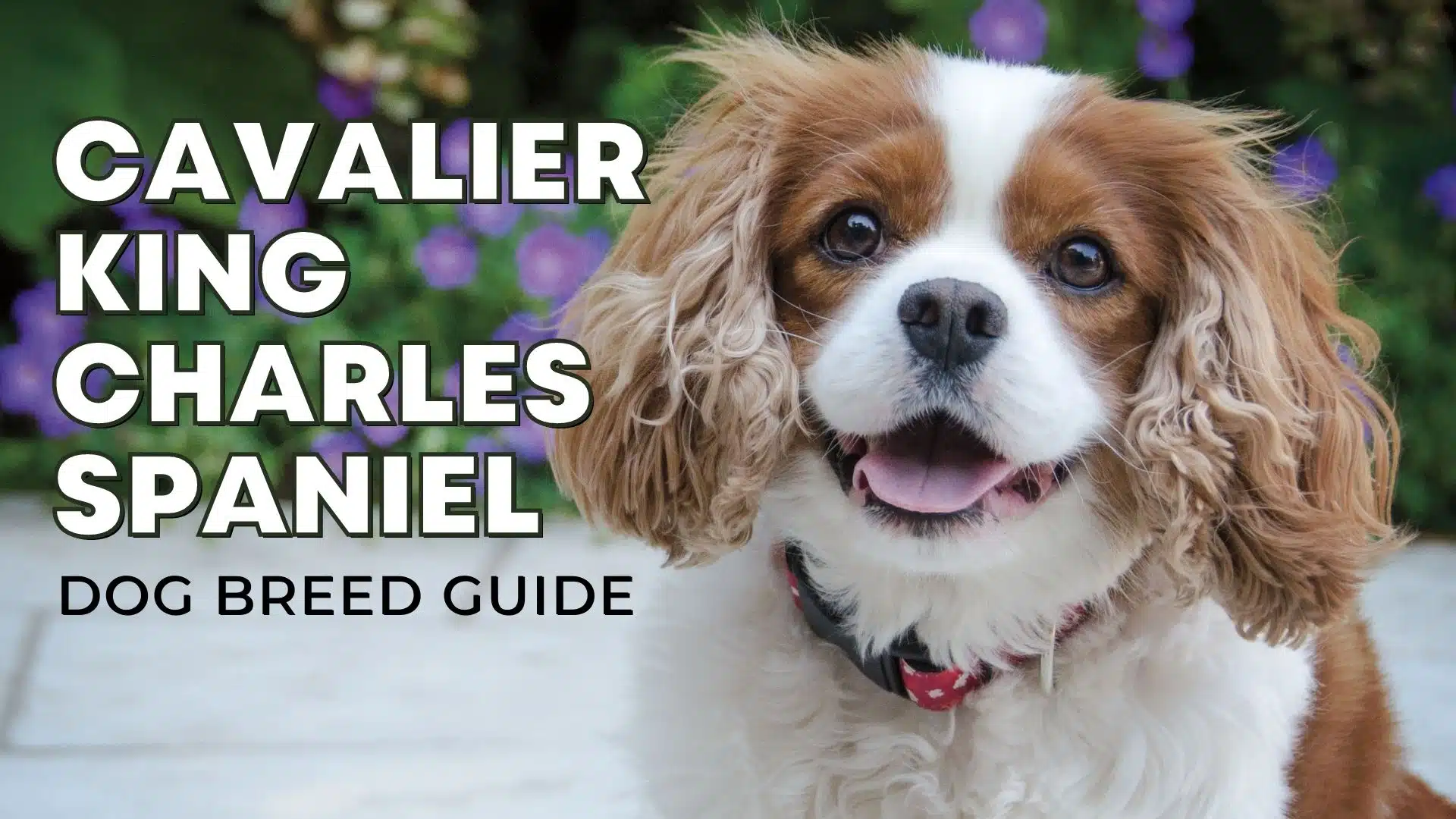
Dog Breed Guide: The Cavalier King Charles Spaniel
The Cavalier King Charles Spaniel dog breed has true aristocratic ancestry. Bred to accompany noble ladies and royals, even the modern Cavalier has regal grace and a dignified appearance.
Cavalier King Charles Dog Breed Guide: Facts, Health & Care
Ranked 18th out of 197 dog breeds recognized by the American Kennel Club, the Cavalier King Charles Spaniel is the ideal lap dog for “empty nesters.” This guide will review the breed’s history, personality, lifestyle requirements, and more.
Breed Basics
- Breed Group: Toy Group
- Temperament: Affectionate, graceful, gentle
- Life Span: 12-15 years
- Weight: 13-18 Ibs
- Height: 12-13 inches
- Colors: White with chestnut markings, white with black markings, black with tan markings, and ruby
- Origin: Great Britain
Best Supplements for Your Furry Friends
Choosing the best supplements for your furry friends depends on their individual needs and health requirements. Omega-3 fatty acids, such as fish oil, can contribute to a healthy coat and support joint health. A balanced multivitamin designed for dogs can fill potential nutritional gaps in their diet.

- Joint health support for dogs: cosequin, the #1 veterinarian recommended retail joint health supplem
- Omega-3 fatty acids: each soft chew also contains omega-3 fatty acids to help support skin and coat
- Manufactured in the united states with globally sourced ingredients: cosequin is a high-quality, dog
- From the #1 veterinarian recommended supplement company*: nutramax laboratories veterinary sciences
- Backed by science: nutramax laboratories veterinary sciences supplements are veterinarian formulated

- This natural fish oil additive supplement works to support your pal’s skin, coat, hips and joints, heart and immune system.
- The premium salmon oil is rich with omega-3 and -6 fatty acids from EPA and DHA to promote soft skin, a shiny coat and good overall health.
- May also help support proper hip, joint, heart and immune function.
- Makes a yummy alternative to capsules or soft chew supplements—simply add to your pet’s favorite meal.
- Great for small, medium and large breed dogs or cats.

- Your sidekick deserves a shiny coat and healthy skin she can feel proud of and show off.
- A therapeutic blend of organic horsetail, dandelion, spirulina and bladderwrack help maintain hair shafts and follicles to promote healthy skin and hair.
- Give your gorgeous girl the capsule whole or mix it into her food.
- PetAlive supplements are made from lab-tested, raw ingredients with no added fillers, gluten, artificial colors, flavors or preservatives.
- Made in FDA-registered, cGMP (current Good Manufacturing Practice) compliant facilities.
Cavalier King Charles Spaniel History
The Cavalier King Charles Spaniel’s ancestor can be traced back to 16th-century England. Initially, this dog had two purposes. Its first purpose was to warm the royal women’s laps during gatherings in droughty castles and carriage rides. The second purpose was to attract the fleas that would otherwise end up bothering the mistress or even infect her with bubonic plague.
During Tudor times, Cavaliers were highly praised, but the Stuarts wrote the breed’s name in history. The breed was renamed after King Charles I and his son – King Charles II. His Cavaliers always accompanied King Charles II and even issued a royal decree that allowed dogs to enter all public places, including the Parliament. When the house of Stuart fell, their dogs’ popularity followed. The decrease in popularity pushed the breed to the brink of extinction.
Later on, in 1926, an American named Roswell Eldrige offered a fabulous prize of 25£ for the person who would re-establish the breed. The result was the modern Cavalier we now know and love.
Cavalier King Charles Spaniel Appearance
The King Charles Cavalier dog breed has a unique and rather contradictory appearance – it is both sophisticated and cute at the same time. It has a regal, graceful, and dignified overall appearance. The sweet and gentle facial expression is the breed’s hallmark. Some Cavaliers are more squarely built, while others are slightly longer than tall.
Size
Cavalier King Charles Spaniel males are 12 inches tall (33 centimeters) and weigh about 13-18 pounds (5.9 to 8.2 kilograms). Females are about 13 inches tall (30 centimeters) and weigh about 10-18 pounds (4.5-8.2 kilograms). Household males often weigh more, but show dogs must fit the standard limits.
Coat and Color
Cavaliers have long, soft, and silky coats with pronounced feathering. There are four color patterns – the most common is Blenheim, which includes a pearly white background with rich chestnut patches. The other color patterns are white with black markings, black with tan markings (also the rarest combination), and ruby. Each color pattern is associated with a different British noble family.
Cavalier King Charles Spaniel Grooming & Maintenance
Cavaliers are not very profuse shedders, but maintaining their long silky fur clean, shiny, lustrous, and tangles-free requires regular brushing – no less than 2-3 times per week and monthly bathing. While bathing, treating a Cavalier with a much-enjoyed body massage is advisable.
The grooming session is not complete without ear inspection and cleaning. As in all smaller breeds, teeth issues can arise, and the best way of preventing them is by regular brushing – no less than three times per week, preferably daily. The nails should be trimmed once a month since overgrown nails can become infected and cause unnecessary pain. Make sure to put your dog at ease when grooming them.
Cavalier King Charles Spaniel Temperament & Personality
Cavalier King Charles Spaniels are playful, carefree, attentive, and surprisingly intelligent dogs. Enchantingly affectionate and always happy to cuddle, they are popularly called – “ love sponges”.
These small bundles of love are always wagging their tails and offering free kisses. Members of this breed will happily descend from their royal high horses in exchange for playing in the backyard’s mud or chasing squirrels in the park.
Cavaliers are naturally amiable, friendly, and eager to make friends with everyone who crosses their path. As well-behaved dogs, they get along really well with other dogs, cats, and even smaller rodent pets. Cavaliers are patient and do not mind being “tortured” affectionately, making them perfect for families with little kids.
Training your Cavalier King Charles Spaniel
Cavaliers are intelligent and love pleasing their owners. However, their lack of focus and short attention spans can make the training challenging. It is advisable to keep the training sessions short and entertaining to complete the training smooth and straightforwardly.
Organizing the sessions in a distraction-free area is also a good idea. Cavaliers are incredibly food-motivated dogs, and their fondness for treats should be used during training. Harsh treatments and scolding have adverse effects.
Cavalier King Charles Spaniels benefit significantly from early socialization and puppy training classes. These classes will help them learn good manners and develop into well-behaved Cavaliers.
With proper training, Cavalier King Charles Spaniels can compete and win awards in many canine sports like agility, obedience, and rally. Lately, their popularity as therapy dogs is on the rise.
Cavalier King Charles Spaniel Exercise Requirements & Energy Level
Do not be fooled by their diminutive size and sophisticated physical appearance – Cavaliers are energetic, active, and sporty dogs. They equally enjoy romping outside as relaxing in your lap. Generally, members of this breed benefit from daily walks in the park, playing exercises, and playdates.
It should be well-noted that Cavaliers are true to their hunting and scenting heritage. If they spot an exciting creature or trail, they will likely pursue and disregard your calling. Therefore, Cavaliers should always be kept on a leash.
Common Cavalier King Charles Spaniel Health Issues
Generally speaking, the top 3 health issues in this breed include heart murmurs, slipping kneecaps, or luxating patella and cataracts. Heart murmurs develop due to congenital deformities or mitral valve disease. Cavaliers have the highest incidence of mitral valve disease in the canine world. A luxating patella usually occurs due to malformation of the knee cap or the adjacent ligaments.
The condition affects the quality of life but can be surgically corrected. A cataract is one of the several eye diseases common in this breed. The frequent incidence of this condition may be age-related. Finally, Cavalier King Charles Spaniels often develop a dermatological issue named in their honor as persistent scratching in Cavaliers.
- Health Concerns
- Heart murmurs
- Eye problems: cataracts, progressive retinal atrophy, keratoconjunctivitis sicca, entropion, corneal dystrophy
- Luxating patella, shoulder luxation
- Inguinal and scrotal hernias
- Blood issues: low number of abnormally big (giant) platelets.
- Recommended Health Tests from the National Breed Club
- Hip Evaluation
- Patella Evaluation
- Cardiac Exam
- Ophthalmologist Evaluation.
Read the Official Breed Club Health Statement here.
Diet & Nutrition Needs: Feeding your Cavalier King Charles Spaniel
Cavalier King Charles Spaniels should eat high-quality dog food.
Once again, do not be fooled by their size – Cavaliers are zealous eaters. Consequently, they are prone to becoming overweight and even obese. Bearing in mind their delicate frame and fragile bones, being overweight can be detrimental to their overall health. Therefore, their food intake must be carefully monitored.
Tips for Adopting & Raising a Cavalier King Charles Spaniel
Purebred Cavalier King Charles Spaniels usually cost between $800 and $2500, but the average purchase cost is around $1500. The expenses of parenting a Cavalier King Charles Spaniel for the first year are roughly $3000. After the first year, the annual costs will be around $1100 or $90 monthly. In total, the average cost of owning a Cavalier is estimated to be $17300.
Deciding to get a Cavalier King Charles Spaniel is a considerable commitment in responsibility, time, and money. However, their immense affection and unparalleled loyalty are worthy of the challenge.
Since Cavaliers are prone to heart problems, it is paramount to arrange regular check-ups at the vet’s office – preferably twice a year. Early diagnosis will make future management more straightforward and more efficient.
Cavalier King Charles Spaniel FAQs
Q: How much do King Charles Cavaliers cost?
A: Cavaliers come with a hefty price tag – from $800 to $2500. Generally, you can find a good pup from a reputable breeder for less than $1500. Remember that the stated amount of money covers only the initial purchase cost.
Q: Do Cavalier King Charles Spaniels bark a lot?
A: Because of their docile nature, Cavaliers are not prone to excessive barking. However, a Cavalier with separation anxiety is likely to manifest a plethora of behavioral problems, including excessive barking.
Q: Are Cavaliers hard to potty train?
A: Cavaliers are naturally intelligent and clean dogs, making potty training relatively straightforward. However, if using a crate as a form of punishment, they may start eliminating while inside as a form of protest.
Q: Can Cavalier King Charles be left alone?
A: Sadly, the answer is no. Cavaliers are highly dependent dogs that thrive on constant human companionship. They cannot be left alone for more than a couple of hours. This breed best suits “empty nesters” and retired senior citizens who can afford to spend the whole day cuddling with their Cavaliers.
Q: What is the rarest color for Cavalier King Charles Spaniels?
A: The rarest color for Cavalier King Charles Spaniels, accepted by the AKC, is black and tan.
Official Resources: Breed Clubs, Rescues & Helpful Links
Official Breed Club: Cavalier King Charles Spaniel Club of America
Rescue A Corgi: Rescue Committee of the Cavalier King Charles Spaniel of America
Official AKC Profile: Cavalier King Charles Spaniel Breed Information
Breed Standard: Official Standard for the Cavalier King Charles Spaniel
Find a Puppy – AKC Marketplace: Cavalier King Charles Spaniel AKC PuppyFinder
Recommended Products for Cavalier King Charles Spaniels
Magic Mouthwash for Dogs
Eco Doggy Bags
Dog Car Safety Seat
Similar Dog Breeds
Japanese Chin
Pug
English Toy Spaniel
80% of Dogs Develop Arthritis or Joint Pain by 7 Years old – Here’s How to Protect Them
Most of us train our dogs when they are puppies to jump up on furniture. We think it’s harmless (and easier than always lifting them), but for dogs, couches and beds are very high compared to the size of their bodies.
Every time they jump it compresses their back and applies enormous force to their joints.
It’s no wonder that an incredible 80% of dogs experience arthritis or joint pain by only 7 years old.
Luckily, there is a vet-recommended solution.
It’s the PawRamp by Alpha Paw. An adjustable ramp that allows dogs to safely get on and off couches and beds. PawRamp makes joining you in bed or on the couch effortless and fun.
As a bonus, you can use code SAVE35 to get $35 off the PawRamp today.





